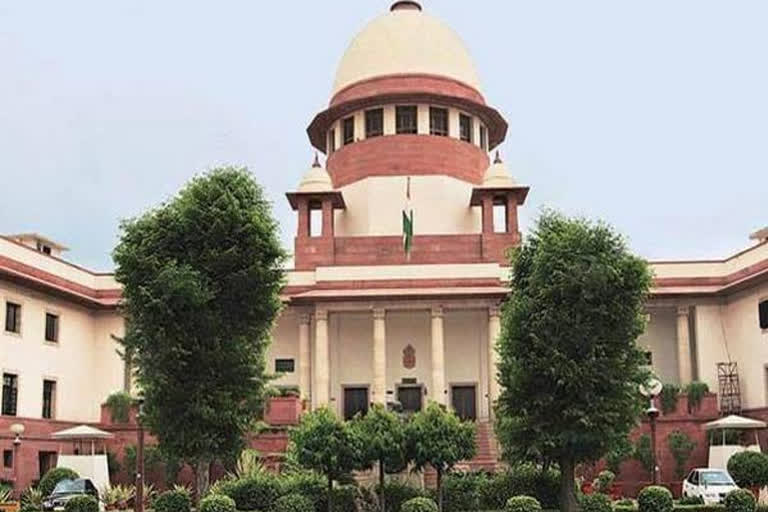New Delhi:The Supreme Court has held that a retired central government employee from Kashmir cannot live in government accommodation for an "indefinite period".
The bench comprising Justice Hemant Gupta and Justice A.S. Bopanna observed this while hearing petitions of retired government employees who are occupying government's accommodation in Delhi and the National Capital Region (NCR) in accordance with 2017 policy which had allowed qualified migrants to be accommodated in the Capital for first 5 years from the date of their retirement. The migrants had to be those employees who were transferred by the central government from Srinagar to Delhi on security grounds after 1st November 1989.
The petitioners argued before the court to Kashmiri migrants as a different class as they are victims of terrorism and they don't have any available accommodation or houses as they would be either destroyed or occupied by the local population.
As per the Centre's scheme, Kashmiri pandits had to be accommodated for 5 years from the date of their retirement and thereafter be shifted to NCR. The court said that it would be reasonable if they are allowed government accommodation for three years and arrange for an alternative place within such period. The retired migrant would not be entitled to the government accommodation for more than three years in any part of the country. Three years can be considered as a cooling off period for the intelligence officers so that they can resume normal life but "on the excuse of working for intelligence agency is not a valid ground to occupy the government accommodation for an indefinite period".
Read: Plea in Supreme Court seeking security for Hindus and Sikhs in Kashmir Valley
However, the central government opposed the arguments, contending that it has provided various benefits to the migrants including grants, financial package for repairs and innovation of houses, jobs, ration etc. The court also observed that after abrogation of Article 370, Kashmiri migrants have started returning to the union territory. It said that around 3,800 people returned to the valley to take up jobs under the PM package, and 2,000 more are likely to return.
"In order to provide accommodation to the 6,000 Kashmiri migrants who are getting employed in the government of Jammu and Kashmir in the valley, 6000 transit accommodation unit are being constructed for Kashmiri migrant employees in various districts of Kashmir Valley at an estimated cost of Rs920 crores. So far, 1,025 dwelling units have already been constructed, which include 721 dwelling units in the district of Budgam, Kulgam, Kupwara, Anantnag and Pulwama. Another 1,488 units are under construction and land has been identified for about 2,444 units," the Centre said in its submission.
Taking note of the government's submission, the court observed that allowing government accommodation to the Kashmiri migrants cannot meet the touchstone of Article 14.
"The government houses or flats are meant for serving government employees. Post-retirement, these employees including Kashmiri migrants, are granted pensionary benefits including monthly pension. The classification made in favour of employees who are Kashmiri migrants stands on the same footing as that of other government employees or public figure. There cannot be any justification on the basis of social or economic criteria to allow the Kashmiri migrants to stay in government accommodation for indefinite long period," said the court.
Read: Civilian killings in Srinagar not linked to anti-militancy operations, says top army official
"To say that they would return to the valley when the situation will improve is an open-ended statement capable of being interpreted in different ways. The satisfaction of improvement of situation would be widely different by the erstwhile government employees and the state. But in no case it can be countenanced that the former government employee may be a Kashmiri migrant, is entitled to stay in a government accommodation for an indefinite period. Thus, we are unable to uphold the office memorandum and strike it down as being totally arbitrary and discriminatory," said the court.
